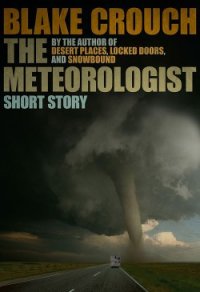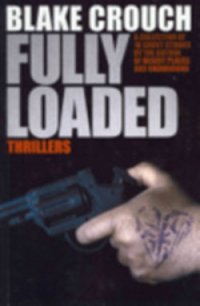Einstein's Monsters - Amis Martin (книги без регистрации бесплатно полностью .TXT) 📗
All peculiarly modern ills, all fresh distortions and distempers, Bujak attributed to one thing: Einsteinian knowledge, knowledge of the strong force. It was his central paradox that the greatest-the purest, the most magical- genius of our time should have introduced the earth to such squalor, profanity, and panic. "But how very like the twentieth century," he said: this was always going to be the age when irony really came into its own. I have cousins and uncles who speak of Einstein as if he were some hero ballplayer captaining a team called the Jews ("the mind on him," "look at the mind on the guy"). Bujak spoke of Einstein as if he were God's literary critic, God being a poet. I, more stolidly, tend to suspect that God is a novelist -a garrulous and deeply unwholesome one too… Actually Bujak's theory had a lot of appeal for me. It was, at least, holistic. It answered the big question. You know the question I mean, and its cumulative disquiet, its compound interest. You ask yourself the question every time you open a newspaper or switch on the TV or walk the streets among sons of thunder. New formations, deformations. You know the question. It reads: Just what the hell is going on around here?
The world looks worse every day. Is it worse, or does it just look it? The world gets older. The world has seen and done it all. Boy, is it beat. It's suicidal. Like Leokadia, the world has done too many things too many times with too many people, done it this way, that way, with him, with him. The world has been to so many parties, been in so many fights, lost its keys, had its handbag stolen, drunk too much. It all adds up. A tab is presented. Our ironic destiny. Look at the modern infamies, the twentieth-century sins. Some are strange, some banal, but they all offend the eye, covered in their newborn vernix. Gratuitous or recreational crimes of violence, the ever-less-tacit totalitarianism of money (money-what is this shit anyway?), the pornographic proliferation, the nuclear collapse of the family (with the breeders all going critical, and now the children running too), the sappings and distortions of a mediated reality, the sexual abuse of the very old and the very young (of the weak, the weak): what is the hidden denominator here, and what could explain it all?
To paraphrase Bujak, as I understood him. We live in a shameful shadowland. Quietly, our idea of human life has changed, thinned out. We can't help but think less of it now. The human race has declassed itself. It does not live anymore; it just survives, like an animal. We endure the suicide's shame, the shame of the murderer, the shame of the victim. Death is all we have in common. And what does that do to life? Such, at any rate, was Bujak's damage check. If the world disarmed tomorrow, he believed, the species would still need at least a century of recuperation, after its entanglement, its flirtation, after its thing with the strong force.
Academic in any case, since Bujak was insuperably convinced that the end was on its way. How could man (that dangerous creature-I mean, look at his record), how could man resist the intoxication of the Perfect Crime, one that destroys all evidence, all redress, all pasts, all futures? I was enough of a peacenik, optimist, and funker to take the other view. A dedicated follower of fear, I always thought that the fat brute and the big bastard would maintain their standoff: they know that if one fist is raised then the whole pub comes down anyway. Not a masterpiece of reassurance, I agree-not at ten fifty-five on a Saturday night, with the drink still coming.
"Deterrence theory," said Bujak, with his grin. "It's not just a bad theory. It's not even a theory. It's an insanity."
"That's why you have to go further."
"You are a unilateralist?"
"Well yeah," I said. "Someone's got to make a start sometime. Make a start. England is historically well placed to give it a try. So the Russians take Europe, maybe. But that risk must be smaller than the other risk, which is infinite."
"This changes nothing. The risk is unaltered. All you do here is make life easier to part with."
"Well, I just think you have to make a start."
Our arguments always ended on the same side street. I maintained that the victim of a first strike would have no reason to retaliate, and would probably not do so.
"Oh?" said Bujak.
"What would be the point? You'd have nothing to protect. No country, no people. You'd gain nothing. Why add to it all?"
"Revenge."
"Oh yeah. The heat of the battle. But that's not a reason."
"In war, revenge is a reason. Revenge is as reasonable as anything. They say nuclear war will not be really war but something else. True, but it will feel like war to those who fight it."
On the other hand, he added, nobody could guess how people would react under the strong force. Having crossed that line the whole world would be crazy or animal and certainly no longer human.
One day in the fall of 1980 Bujak traveled north. I never knew why. I saw him on the street that morning, a formidable sight in the edifice of his dark blue suit. Something about his air of courtly gaiety, his cap, his tie, suggested to me that he was off to investigate an old ladyfriend. The sky was gray and gristly, with interesting bruises, the street damp and stickered with leaves. Bujak pointed a tight umbrella at his own front door. "I come back tomorrow night," he said. "Keep an eye on them."
"Me? Well, sure. Okay."
"Leokadia, I learn, is pregnant. Two months. Pat. Oh, Pat-he really was too bad." Then he shrugged powerfully and said, "But I'm pleased. Look at Boguslawa. Her father was an animal too. But look at her. A flower. An angel from heaven."
And off he went, pacing out the street, content, if necessary, to walk the whole way. That afternoon I looked in on the girls and drank a cup of tea with old Roza. Christ, I remember thinking, what is it with these Polacks? Roza was seventy-eight. By that age my mother had been dead for twenty years. (Cancer. Cancer is the other thing-the third thing. Cancer will come for me too, I guess. Sometimes I feel it right in front of me, fizzing like television inches from my face.) I sat there and wondered how the quality of wildness was distributed among the Bujak ladies. With pious eyes and hair like antique silver, Roza was nonetheless the sort of old woman who still enjoyed laughing at the odd salacious joke-and she laughed very musically, one hand raised in gentle propitiation. "Hey, Roza," I would say: "I got one for you." And she would start laughing before I began. Little Boguslawa-seven, silent, sensitive-lay reading by the fire, her eyes lit by the page. Even the brawny beauty Leokadia seemed steadier, her eyes more easily containing their glow. She spoke to me now as levelly as she used to before we had that awkward tangle in my apartment. You know, I think the reason she put out for the boys so much was the usual thing about trying to accumulate approval. Approval is funny stuff, and some people need a lot more of it than others. Also she was obviously very rich in her female properties and essences; being prudent isn't so easy for girls kitted out like that. Now she sat there equably doing nothing. The red flag was down. All was calm with her dangerous floods and tides. A moony peace-Michi was like that herself sometimes, when our child was on the way. Our little one. Expecting. I stuck around for an hour or so and then crossed the road again, back to my study and its small life. I sat and read Mosby's Memoirs for the rest of the evening; and through my window I did indeed keep an eye on the Bujak front door. The next day was Friday. I looked in on the ladies to drop off a key before heading north myself -to Manchester and to Michiko. Meanwhile, energetic actors, vivid representatives of the twentieth century-Einstein's monsters-were on their way south.

![[Magazine 1968-012] - The Million Monsters Affair - Davis Robert Hart (читать книги TXT) 📗](/uploads/posts/books/56864/56864.jpg)


